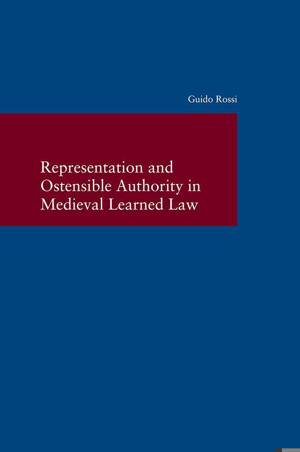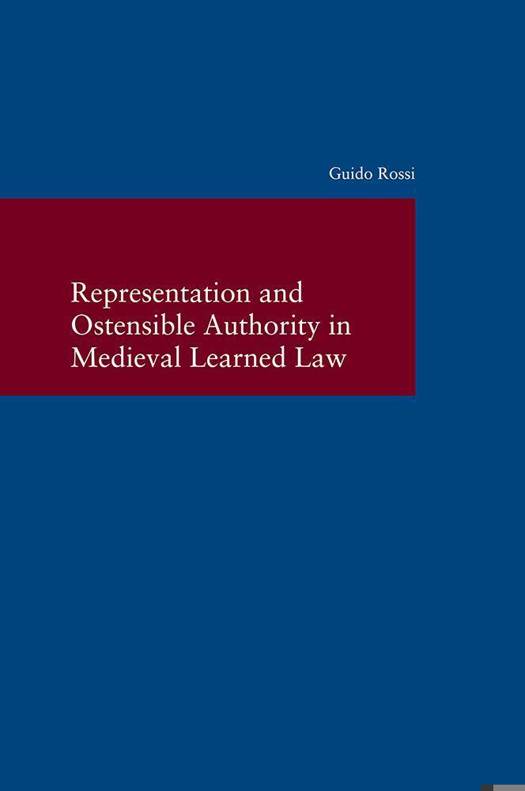
- Afhalen na 1 uur in een winkel met voorraad
- Gratis thuislevering in België vanaf € 30
- Ruim aanbod met 7 miljoen producten
- Afhalen na 1 uur in een winkel met voorraad
- Gratis thuislevering in België vanaf € 30
- Ruim aanbod met 7 miljoen producten
Zoeken
Omschrijving
When is it possible to hold valid an act done unlawfully? To answer the question, medieval civil lawyers focused mainly on the case of a slave elected praetor in the mistaken belief that he was a Roman citizen. Most jurists argued that the validity of an act should depend on the validity of its source. But whilst early civil lawyers thought that the source was the person vested with some specific powers (such as the judge, the notary, etc.), later on they began to think of the person as representative of an office, and to ascribe the acts directly to the office itself. This evolution - and so, the foundations of the concept of ostensible authority - was due to the influence of canon lawyers, who had to deal with a similar problem: what if a bishop was secretly heretical?
Specificaties
Betrokkenen
- Auteur(s):
- Uitgeverij:
Inhoud
- Aantal bladzijden:
- 600
- Taal:
- Engels
- Reeks:
- Reeksnummer:
- nr. 319
Eigenschappen
- Productcode (EAN):
- 9783465043904
- Verschijningsdatum:
- 1/08/2019
- Uitvoering:
- Paperback
- Formaat:
- Trade paperback (VS)
- Afmetingen:
- 159 mm x 242 mm
- Gewicht:
- 190 g

Alleen bij Standaard Boekhandel
+ 193 punten op je klantenkaart van Standaard Boekhandel
Beoordelingen
We publiceren alleen reviews die voldoen aan de voorwaarden voor reviews. Bekijk onze voorwaarden voor reviews.











